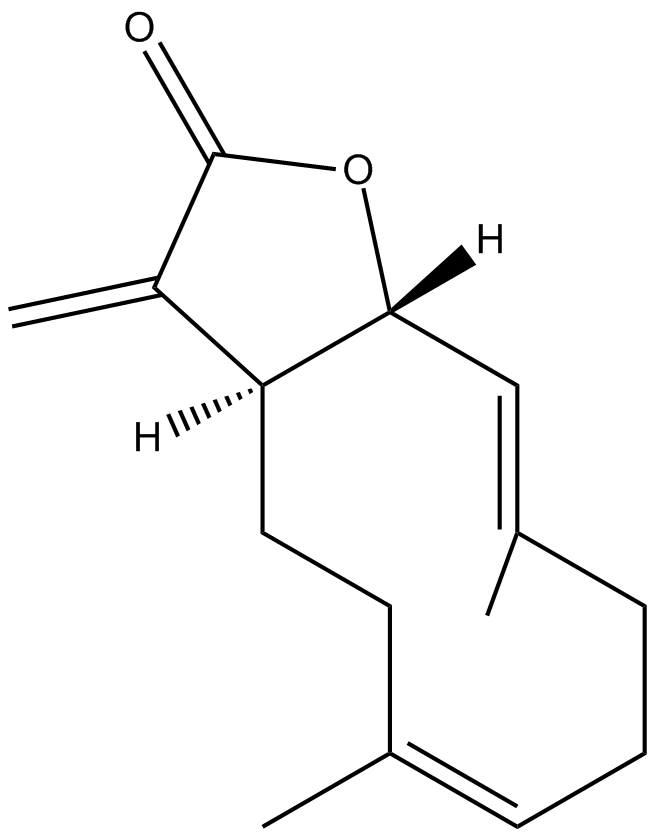Costunolide (Synonyms: Costus lactone, Melampolide, NSC 106404) |
| Catalog No.GC16116 |
A natural sesquiterpene lactone
Products are for research use only. Not for human use. We do not sell to patients.

Cas No.: 553-21-9
Sample solution is provided at 25 µL, 10mM.
Description:
IC50 Value: 6.2 - 9.8 μg/mL(sarcoma cells viability)[3]
Costunolide, a sesquiterpene lactone, exhibits anti-inflammatory and anti-oxidant properties and mediates apoptosis.
in vitro: Costunolide significantly inhibited RANKL-induced BMM differentiation into osteoclasts in a dose-dependent manner without affecting cytotoxicity. Costunolide did not regulate the early signaling pathways of RANKL, including the mitogen-activated protein kinase and NF-κB pathways. However, costunolide suppressed nuclear factor of activated T-cells, cytoplasmic 1 (NFATc1) expression via inhibition of c-Fos transcriptional activity without affecting RANKL-induced c-Fos expression. The inhibitory effects ofcostunolide were rescued by overexpression of constitutively active (CA)-NFATc1 [1]. Exposure of T24 cells to costunolide was also associated with increased expression of Bax, down-regulation of Bcl-2, survivin and significant activation of caspase-3, and its downstream target PARP [2]. Both costunolide and dehydrocostus lactone inhibited cell viability dose- and time-dependently. IC50 values ranged from 6.2 μg/mL to 9.8 μg/mL. Cells treated with costunolide showed no changes in cell cycle, little in caspase 3/7 activity, and low levels of cleaved caspase-3 after 24 and 48 h [3].
in vivo: Neither costunolide nor alpha-MGBL affected the blood-ethanol elevation in pylorus-ligated rats or that induced by intraperitoneal and intraduodenal ethanol administration [4]. Costunolide and alpha-MGBL suppressed gastric emptying in rats given 20% ethanol and 1% sodium carboxymethyl cellulose.
Clinical trial: N/A
Review for Costunolide
Average Rating: 5 (Based on Reviews and 30 reference(s) in Google Scholar.)
Review for Costunolide
GLPBIO products are for RESEARCH USE ONLY. Please make sure your review or question is research based.
Required fields are marked with *




















